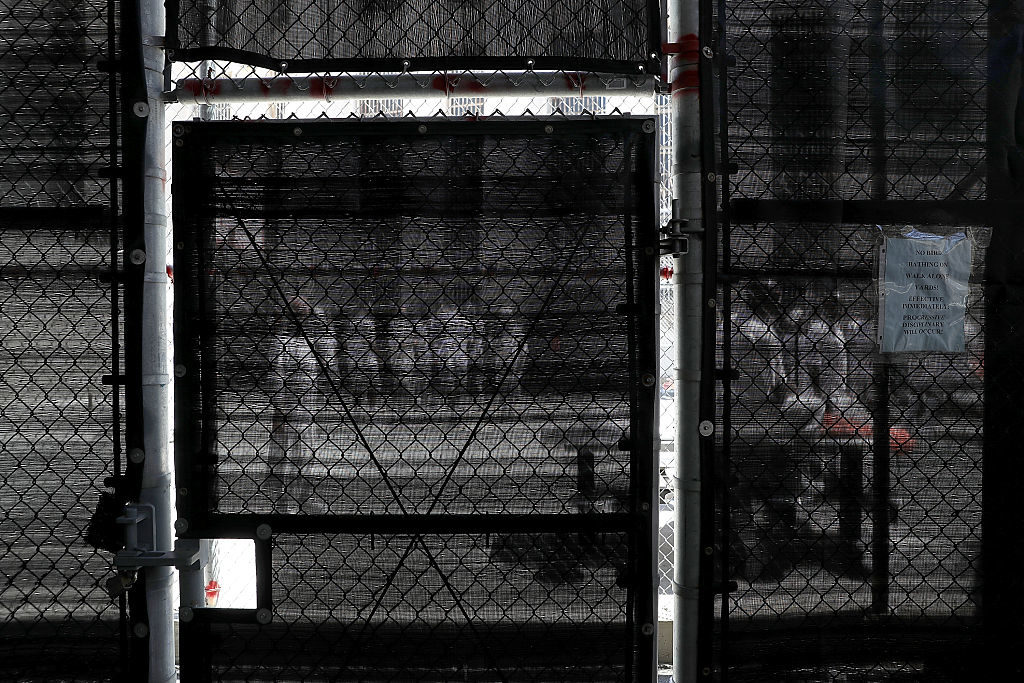Abuse Of Mentally Ill People In U.S. Prisons: A National Crisis

Prison should be a place where people who engage in unlawful behavior that hurts or infringes on the rights of other people go to rehabilitate. But if that person has committed a crime due to mental illness, they should be properly cared for by mental health care specialists, not by sitting in prison.
Unfortunately, in practice, that ideal is nowhere close to a reality.
Take the case of Steven Jessie Harris, a man who entered the Mississippi prison system under murder charges in 2005. Though doctors had confirmed that this man suffered from symptoms of schizophrenia and he was declared unfit to stand trial, he somehow remained in prison for 11 years without even being offered any kind of trial or opportunity to get out.
His brother claims the mental disorder, as well as the alleged shooting of their father by another culprit, was what triggered the tragic violent episode. District Attorney Scott Colom said Harris’ case simply “fell through the cracks”.
Harris wrote a letter that he intended to send to the “U.S. General” in 2012:
“I been in jail…after I stormed the city of West Point with my guns. I need your help because it was war crimes, and I can’t get a fair trial…please let me go with some funding.”
Sadly, this couldn’t be further from the only case of mentally ill people being mistreated by our criminal justice system.
The problem starts with how police tend to treat mentally ill people who are not yet incarcerated. According to a report written by the Treatment Advocacy Center in 2015, a person with an untreated mental illness is 16 times more likely to be killed by police.
The US criminal justice system, whether it’s behind the bars or on the streets, has disturbingly become a way to address mental illness in lieu of any affordable public mental health care option in the country. As recently as 2012, reports indicated that there were around 356,268 people with severe mental illnesses in prison and jails. In state hospitals at the time, there were only about 35,000 patients with severe mental illnesses.
You read that right. That means that in 2012, there were about 10 times as many people with severe mental illnesses in prison than in state hospitals. While awareness of this may be on the rise in some circles, undoubtedly this problem has yet to be addressed comprehensively on a federal level.
The Treatment Advocacy Center has also released a report which claims that the following issues associated with incarcerated mentally ill persons are widespread:
- Prison overcrowding due to recidivism and longer sentences for the mentally ill
- Behavioral issues behind bars which causes issues for other incarcerated people and staffers
- High rates of victimization for people with mental illnesses
- The prison environment causing mentally ill persons to become even more ill during imprisonment
- Incarcerated mentally ill people committing suicide
- High taxpayer costs
- A higher rate of solitary confinement for mentally ill incarcerated people
This is a crisis of human rights and an epidemic of unthinkable cruelty. There are countless individuals with severe mental health care issues who are doing time in solitary confinement, surfing more and more and becoming more ill by the day. Our society has a moral obligation to make sure that no person with a legitimate mental illness is doing time behind bars and especially not in solitary confinement; they must instead be treated by hospitals.
Will all of these individuals be able to integrate back into society? No. But we cannot force these people into solitary confinement, and we cannot allow their mental state to deteriorate without proper care. While many state and federal prisons do offer mental health care facilities, the problem is far too widespread and a new system must be created to stop this crisis.
We can’t continue to ignore the basic rights of our citizens. We can’t keep letting this issue hide in the shadows.
